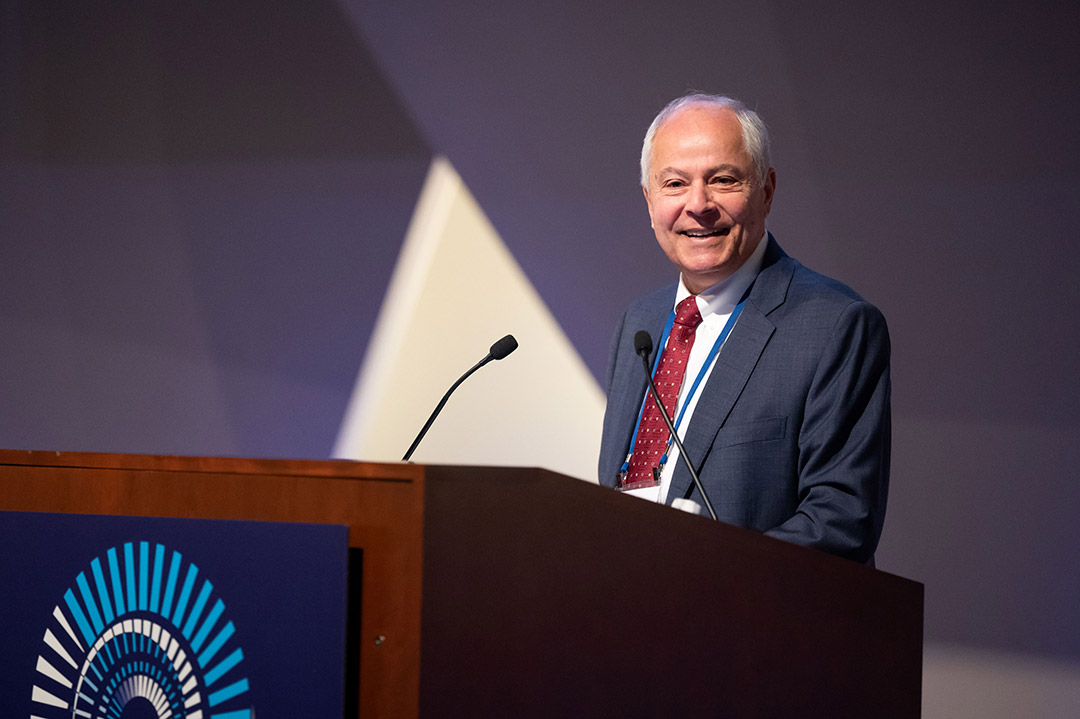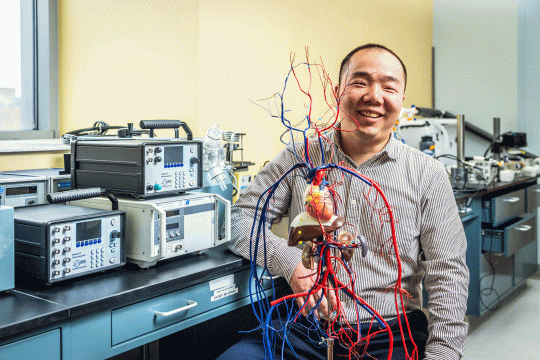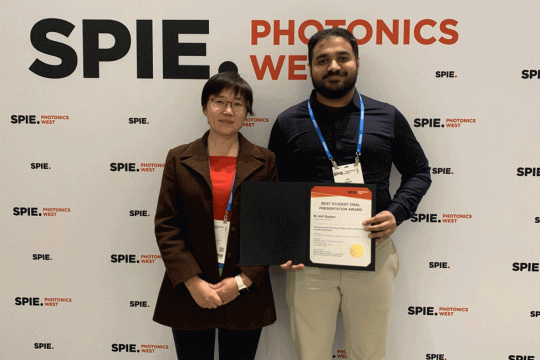REMADE Institute to lead 2024 circular economy tech summit in D.C. next month
Thought-leadership event to showcase strategies, technologies to achieve net-zero by 2050
REMADE Institute
Nabil Nasr, pictured at last year’s inaugural event, said next month’s summit and conference represents another important step in building critical connections between businesses, academia, and policymakers toward a circular economy.
A national institute, led in part by Rochester Institute of Technology, next month is hosting the 2024 REMADE Circular Economy Technology Summit & Conference in Washington, D.C., highlighting emerging strategies and technologies to accelerate the adoption of a circular economy.
The REMADE Institute, a public-private partnership established in partnership with the U.S. Department of Energy (DOE) with an initial investment of $140 million, is organizing the summit in partnership with the Ellen MacArthur Foundation and with key support from the DOE’s Office of Energy Efficiency and Renewable Energy (EERE) and several industry, trade associations, and academic sponsors.
The thought-leadership event will take place April 10-11, at the National Academy of Sciences Building, 2101 Constitution Ave., N.W., in the nation’s capital.
Industry innovators, academic and national lab researchers, business leaders, public sector representatives, and others working to accelerate the transition to a circular economy are strongly encouraged to attend.
REMADE CEO Nabil Nasr, associate provost and director of RIT’s Golisano Institute for Sustainability, said the conference represents an important step in building critical connections among industry leaders, academia, and policymakers toward a circular economy.
“REMADE is excited to host this important summit once again, featuring renowned experts from across the country and around the world,” said Nasr. "Our ultimate objective is to advance the global conversation on a circular approach and how it can support the U.S. and nations around the world in meeting their multiple energy, environmental, manufacturing, industrial decarbonization, and economic goals.”
Efforts are ongoing worldwide to move from today’s linear economy, where we take-make-dispose, to a circular economy, where we make-use-reuse-remanufacture-recycle. Reducing energy consumption, decreasing greenhouse gas emissions, decreasing the use of raw or virgin materials, and increasing the supply and use of recycled materials are major components of this transformation.
According to the U.S. Department of Energy, manufacturing accounts for 25% of U.S. energy consumption at a cost of approximately $150 billion. In addition, based on data from the U.S. Environmental Protection Agency , industry is the single largest contributor to greenhouse gas emissions in the nation at 30%.
These are just some of the reasons why circular manufacturing is so critical, Nasr said.
“Research shows that renewable energy, diet shift, and other approaches will get us a little more than halfway to net-zero by 2050, about 55% of the way,” he said. “A circular economy approach to how we manufacture and use everyday products addresses the remaining 45%, helping us get all the way to net-zero.”
In addition to a wide array of keynote and plenary speakers, the conference agenda will include presentations on dozens of research papers, including several from RIT.
Increasingly, companies and governments alike are turning to circularity as a viable pathway for decarbonizing industry while continuing to meet the world’s needs through economic growth. Yet there are still sizeable knowledge gaps when it comes to putting circularity into practice, both from a logistical and technological perspective, Nasr observed.
Experts agree that a systems approach is essential to planning circular economy solutions. It will be a theme throughout the event, focusing on how a circular economy can be used to address complex challenges such as climate change or the depletion of natural resources.
Themed tracks will feature presentations offering in-depth explorations of novel technologies and tools that are capable of advancing the circular economy. These presentations, based on peer-reviewed papers, will give attendees access to new research from around the globe, including those in the U.S. funded through REMADE. They will explore key focus areas such as systems analysis, design for circularity, innovations in remanufacturing, mechanical recycling, and the pathway to net-zero emissions in manufacturing and materials.
REMADE, founded in 2017, is the only national institute focused entirely on developing innovative technologies to accelerate the U.S.’s transition to a circular economy. The institute is part of Manufacturing USA, a national network of 17 federally designated, public-private partnerships united to secure U.S. global leadership in advanced manufacturing through large-scale collaboration on technology, supply chain, and workforce development.
REMADE’s inaugural summit and conference in D.C. last year attracted more than 300 attendees and featured nearly 60 presentations on peer-reviewed papers.
For more information about REMADE’s 2024 conference, go here.












